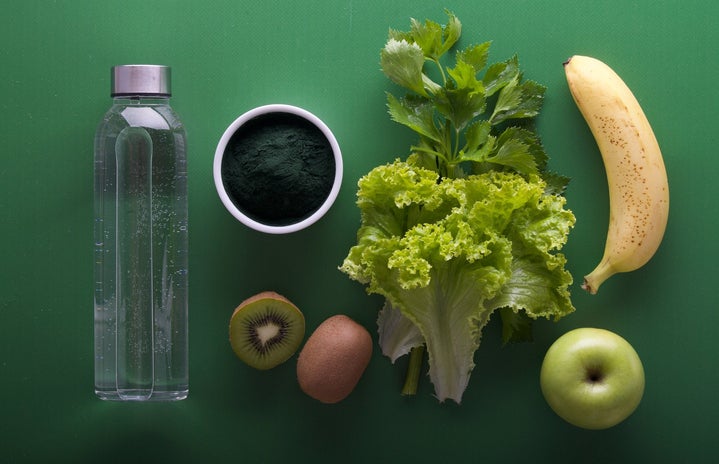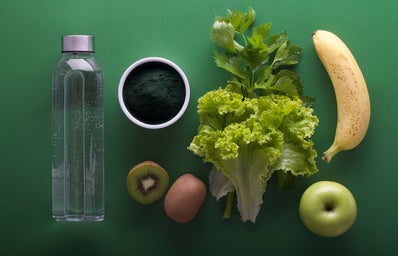With the dawn of the New Year comes the much anticipated resolution list, which we will probably spend more time brainstorming than actually completing. What better way to procrastinate our resolutions than see what wellness trends are in store for 2020? The wellness world has been a wild one, from avocado toast, to collagen, to the celery juice some believe tastes delicious while others think tastes like liquid grass. But these are of the past, of the 2010s! Let’s see what the (new) Roaring ’20s have in store for those same wellness obsessives.
- Alternative and sustainable eating
-
Remember oat milk and the Beyond Burger? Yeah, those vegan-friendly options won’t be going away come the New Year. Some inspiration may be necessary because this year foodies will face more than cauliflower gnocchi and Everything but the Bagel seasoning from Trader Joe’s. Say (a somewhat) goodbye to plant-based proteins by Beyond and Impossible, and hello to sustainable seafood, grain-free foods, low-alochol and non-alcoholic drinks, and tajín seasoning.
In addition to new food products in the market, intuitive eating will also be prominent in 2020. Now you can delete that quizlet you made to study up on those confusing keto and paleo diets! Instead of following strict diets, intuitive eating preaches eating what you want, when you want, with a more mindfulness focus. It is about balance and avoiding the tendency to label foods as “good” or “bad.”
Related Article: How to Make Your Self-Care Sunday More Sustainable
- Affordable self-care
-
So, yes, expensive all-day yoga retreats and hot-stone messages will continue to be a thing for those who can afford these self-care luxuries. However, self-care will not be fading into the background either, which has prompted new trends of more affordable mindful practices to rice to the surface. Some examples are ecotherapy, which encourages individuals to engage in an outdoor activity like gardening or walking to improve your mental health, and blue mindfulness, which similarly preaches the power of water activities like swimming or surfing to have a positive impact on your mental health.
Meditation apps like Headspace and Calm are two examples of how brands are experimenting with how to make mindfulness more accessible to everyone, regardless of socioeconomic background.
- All things CBD
-
I will admit that once upon a time, my friend and I were visiting Boston and we went into the newly opened CBD store on Newbury Street to see what all the fuss was about. Neither the sips I was able to withstand, nor the oil which I spread on my temples, neck, and wrists, made the slightest impact on my anxiety or stress. However, there is hope!
CBD became popular in 2019, but it will continue to be so in the new year. The soothing properties of CBD (a completely legal, nonpsychoactive strain of cannabis) also make it the perfect skincare hack. In fact, those who suffer with skin conditions like acne can use CBD to calm the skin and soothe redness. However, there is not a lot of scientific research to back up the wellness benefits of CBD, so always be careful when using these products. If you want to try out some lowkey CBD products, consider Not Pot gummies and Rosebud CBD oil.
Related Article: Everything You Need to Know About CBD Oil for Anxiety
- Innovation in menstruation
-
In the new year, v-care (vaginal healthcare) and femtech will only continue to grow. Vagina and period products will no longer be taboo, and menstruation tracking apps will face stricter regulation thanks to femtech. With the rise of femtech, women will have more access to period-proof underwear, wireless breast pumps, hair removal, and endometriosis management.
- Digital detox
-
The negative impacts of social media is not new, but taking a digital detox is. I have tried to disregard Instagram and Snapchat for a whole day, and can report back the benefits of less screen time. While virtual wellness allows individuals to complete yoga, cardio, and kickboxing workouts via an interactive screen in the safety of their home, digital wellness acknowledges a different kind of mental wellbeing. Spending time not on your phone is perhaps the most economical self-care practice money can(not) buy––and the positive impacts only increase from there.
The wellness industry is a mystical one which is oftentimes difficult to unravel given the onslaught of advertisements on social media that preach the latest health trends. I offer this as a disclaimer: although these five trends are up-and-coming for 2020, it is important to always take this information with a grain of salt, because not all health products are as healthy as they may appear to be at first glance.


